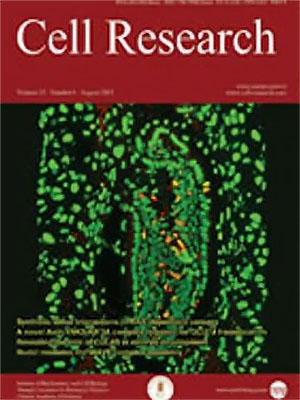
Volume 11, No 2, Jun 2001
ISSN: 1001-0602
EISSN: 1748-7838 2018
impact factor 17.848*
(Clarivate Analytics, 2019)
Volume 11 Issue 2, June 2001: 149-155
ORIGINAL ARTICLES
Agrobacterium tumefaciens-mediated transformation of rice with the spider insecticidal gene conferring resistance to leaffolder and striped stem borer
HUANG Jian Qiu1,*, Zhi Ming WEI1, Hai Long AN1, Yu Xian ZHU2
1 National Laboratory of Plant Molecular Genetics, Institute of Plant Physiology and Ecology, Shanghai Institute for Biological Sciences, Chinese Academy of Sciences, Shanghai 200032, China
2 National Laboratory of Plant Genetic Engineering and Protein Engineering, College of Life Science, Peking University, Beijing 100871, China
Correspondence:
Immature embryos of rice varieties ``Xiushui11" and ``Chunjiang 11" precultured for 4d were infected and transformed by Agrobacterium tumefaciens strain EHA101/pExT
7 (containing the spider insecticidal gene). The resistant calli were transferred onto the differentiation medium and plants were regenerated. The transformation frequency reached 56% ~ 72% measured as numbers of Geneticin (G418)- resistant calli produced and 36% ~ 60% measured as numbers of transgenic plants regenerated, respectively. PCR and Southern blot analysis of transgenic plants confirmed that the T-DNA had been integrated into the rice genome. Insect bioassays using T1 transgenic plants indicated that the mortality of the leaffolder (Cnaphalocrasis medinalis) after 7d of leaf feeding reached 38% ~ 61% and the corrected mortality of the striped stem borer (Chilo suppressalis) after 7d of leaf feeding reached 16% ~ 75%. The insect bioassay results demonstrated that the transgenic plants expressing the spider insecticidal protein conferred enhanced resistance to these pests.
FULL TEXT | PDF
Browse 2685


